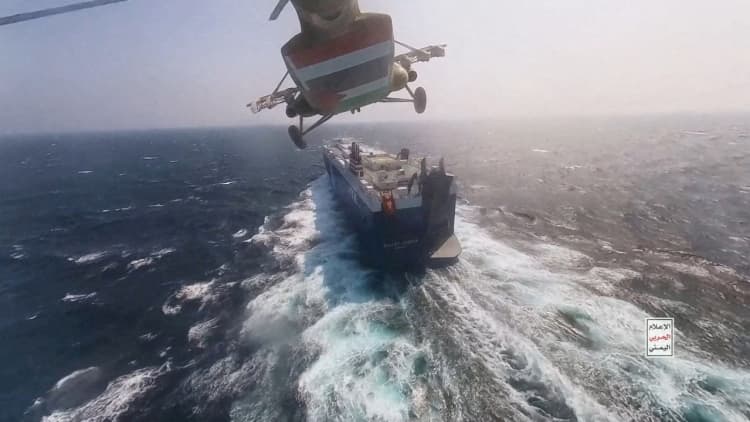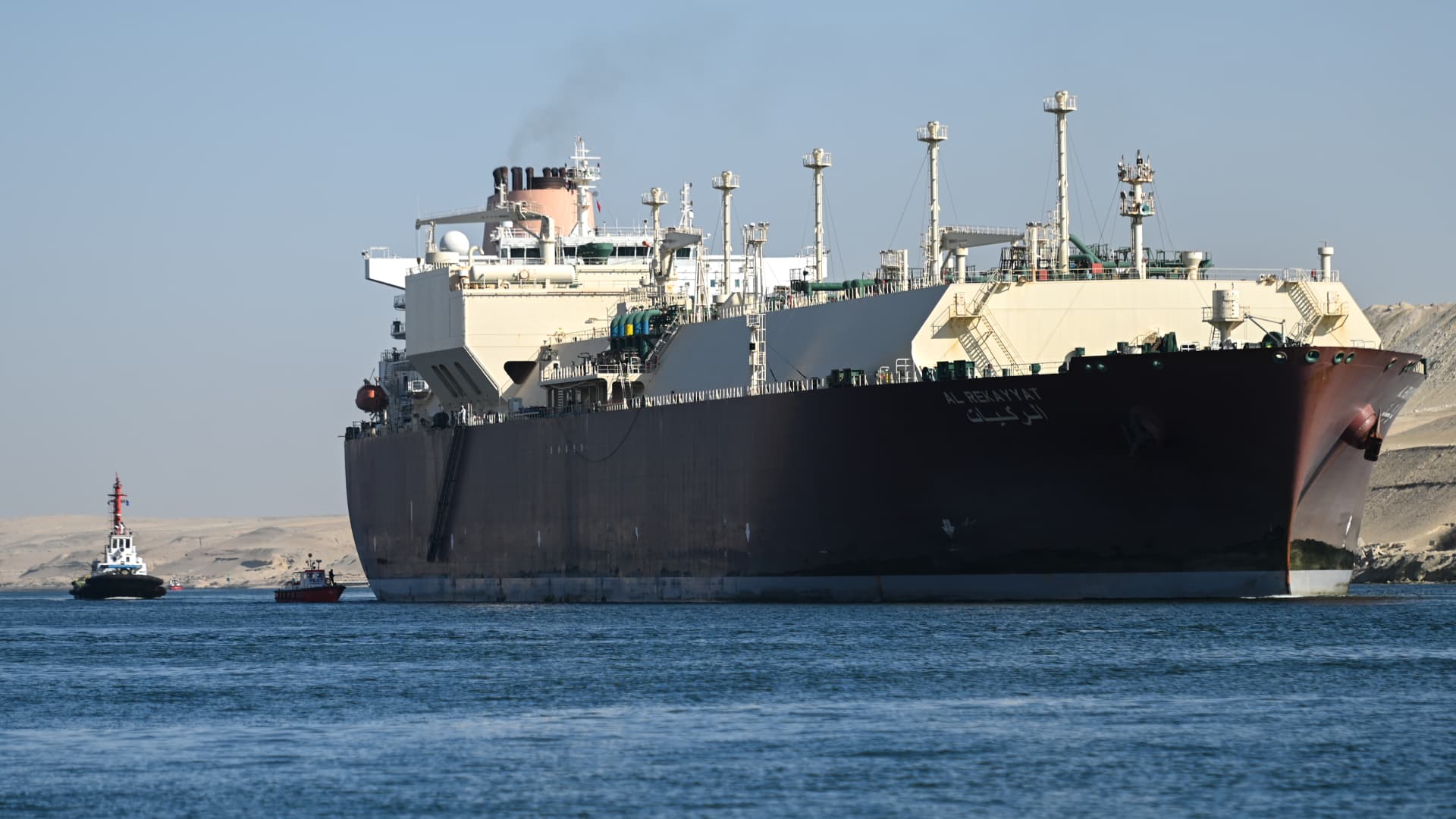A ship transits the Suez Canal towards the Red Sea on January 10, 2024 in Ismailia, Egypt.
Sayed Hassan | Getty Images
Trade associations representing sectors across the global economy have joined an open letter urging more governments around the world to join Red Sea maritime security efforts.
The letter, obtained exclusively by CNBC, was signed by many of the top trade groups in the U.S., including the American Apparel and Footwear Association and the National Retail Federation.
Currently, U.S.-led Operation Prosperity Guardian is the primary military defense effort protecting merchant vessels that have come under attack from Houthi rebels in the Red Sea. The multinational security initiative has at least 23 participating countries to date, but the open letter calls on more nations to play a role in protecting shipping.
“As representatives of organizations whose members depend on safe and secure ocean shipping routes, we urgently call on countries to join, support, or align with the mission to support safe and secure maritime commerce in the Red Sea,” the letter states.
The trade groups’ letter comes at a time when the scrutiny of military efforts in the Red Sea is rising within countries that have taken a lead role, including the U.S.
Senators on the Foreign Relations Committee, as well as House representatives, have recently questioned the Biden administration’s unilateral authorization of Navy action in the Red Sea that can be on behalf of foreign-flagged vessels. France is among nations to recently face political pressure and make a change to prioritize the protection of domestic-flagged vessels. Political concerns in the U.S. increased last week after the deaths of five U.S. servicemen serving in the region.
Despite political pressure, the flow of global trade remains heavily reliant on the use of foreign vessels. U.S. import and export data, in particular, shows that the majority of the country’s trade is on foreign-flagged vessels, with less than 3% of trade carried by U.S. vessels, according to MDS Transmodal.
The trade reality also aligns with the longstanding United States’ policy upholding freedom of navigation for all nations as a principle. Under international law, freedom of navigation is defined as the “freedom of movement for vessels, freedom to enter ports and to make use of plant and docks, to load and unload goods and to transport goods and passengers.”
“It is imperative that countries that have not yet joined or aligned with this vital mission do so immediately,” the letter states. “Widespread participation and cooperation among nations are essential to signal the importance of free and fair treatment in international waters.”
American Apparel and Footwear Association president and CEO Steve Lamar said in a statement accompanying the letter’s release that governments must unite around “a zero-tolerance approach to deter attacks on commercial vessels and seafarers in the Red Sea, and anywhere in the world.”
Associations hailing from Canada, Bangladesh, Brazil, Portugal, Africa, India, Taiwan, and Poland are represented on the list.
The U.S. has been conducting Operation Prosperity Guardian as a defensive operation in the Red Sea with more than 20 countries providing support. Defense officials have told CNBC that between four to eight coalition vessels at any given time are monitoring the waters.

Up to 30% of global trade transits the Suez Canal and the current diversion around the Cape of Good Hope, totaling $80 billion in cargo to date, adds two to three weeks in travel time, as well as “hundreds of thousands” in added fuel and labor costs, the letter states. Beyond financial costs, port congestion, equipment shortages, and shipping rate increases are to be expected.
“This alternative route becomes even more challenging during the Southern Hemisphere winter months,” noted Matthijs Crietee, secretary general of the International Apparel Federation, in a statement accompanying the release of the letter.
According to the trade groups, shipping lanes on the other side of the world from the Red Sea “are beginning to be adversely affected,” with cost and capacity issues that are “incalculable.”
Freight rates did rise sharply amid Houthi attacks and most major ocean carriers have diverted to the Cape of Good Hope, but there are recent signs that the sudden shipping inflation may have already peaked. Shipping CEOs note that the industry is dealing with vessel overcapacity caused by the Covid boom, and sector economics remain challenging amid the Red Sea disruptions.
The letter also referenced the Panama Canal drought, which has strained the delivery of Asian goods to the U.S. East Coast.
The Red Sea diversions, the letter says, are “a global problem that demands the participation and support of all nations that rely on global trade.”

